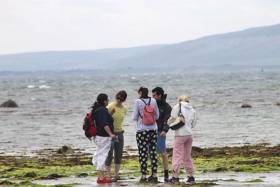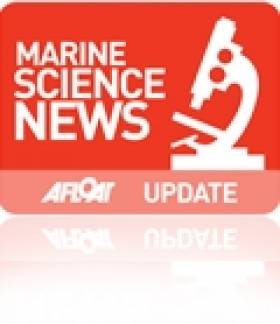Displaying items by tag: CPD
New Marine-Themed CPD Course For Primary Teachers In Galway
#MarineScience - The Explorers Education Programme has recently launched a free continuous professional development (CPD) course for primary school teachers in the West of Ireland, which can be carried out during Croke Park hours.
The new CPD course provides an "exciting opportunity for teachers to develop interesting ways of introducing cross-curricular ocean themes into their school planning, class activities as well as seashore fieldwork,” said Dr Noirin Burke, education director at Galway Atlantaquaria.
The course uses a number of key education methodologies, including inquiry-based learning and fieldwork planning, that links to the national curriculum. The course is flexible in which it can be carried out at Galway Atlantaquaria, Salthill Promenade, Galway or at the school.
Dr Peter Heffernan, chief executive of the Marine Institute – which funds the Explorers progamme – congratulated Galway Atlantaquaria for delivering the CPD course in Galway.
"We welcome the opportunity to support educators and teachers through the Explorers Education Programme recognising the importance of our personal connection with the ocean.
“The ocean has a significant impact on our wellbeing, health and economy and it is great to see this being picked up in the classroom."
To book a place or for more information, email the Explorers education team at Galway Atlantaquaria at [email protected] or call 091 585 100.
#MarineScience - Suitable candidates in the marine science field are invited to apply for the accredited continuous professional development module (CPD) titled Applied Marine Biological Sampling and Data Collection.
The module will take place from 30 September to 25 October 2013 and is offered by Galway-Mayo Institute of Technology (GMIT) and the Strategic Marine Alliance for Research and Training (SMART).
Applied Marine Biological Sampling and Data Collection aims to provide attendees with the detailed practical knowledge and skills necessary to design and implement biological sampling and data collection campaigns on marine commercial platforms.
The module is aimed at postgraduate students of marine science and marine industry personnel.
Four days of ship-time sampling and data collection onboard the RV Celtic Voyager and the IWDG's Celtic Mist off Cork and in the Shannon Estuary respectively are supported by three days of intensive laboratory practicals and lectures in GMIT.
- onboard, at practicals and lectures is required from 7-13 October with all other elements accomplished through student-centred distance learning.
Themes addressed include quantitative sampling of fisheries and benthos; surveying and monitoring methodologies for cetaceans and seabirds; tissue sampling and preservation; and oceanographic data collection and sampling.
Completion of the module results in an award of 5 credits at NFQ level 9 under the European Credit Transfer System (ECTS).
The Strategic Marine Alliance for Research and Training (SMART) is a marine science partnership programme designed to further develop capacity in carrying out offshore operations on board research vessels for third level students of marine-related science and technologies.
This strategic collaborative inter-institutional programme is led and funded by Irish Higher Education Institutions (HEIs) and the Marine Institute, and is also supported by the Higher Education Authority (HEA).
The online application forms is available HERE or my e-mailing [email protected]. Further details on the course and its instructors is included in a PDF available to read or download HERE.

























































